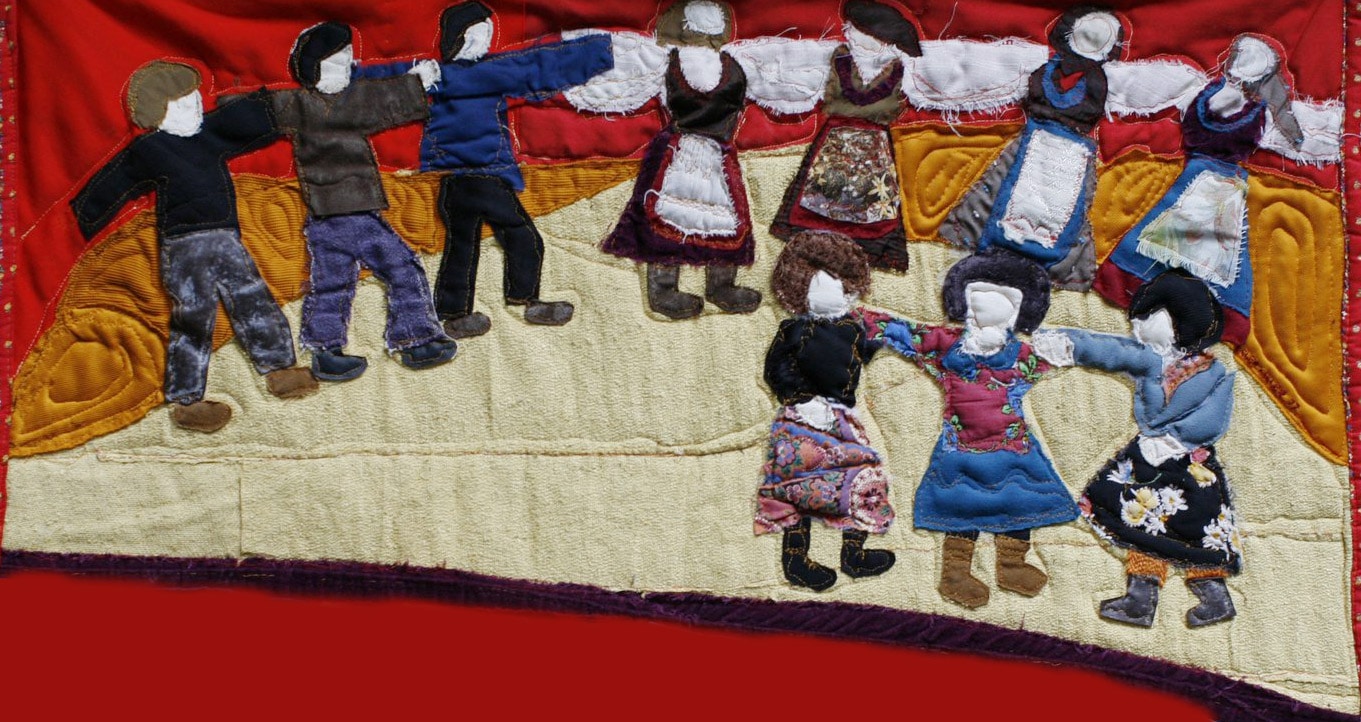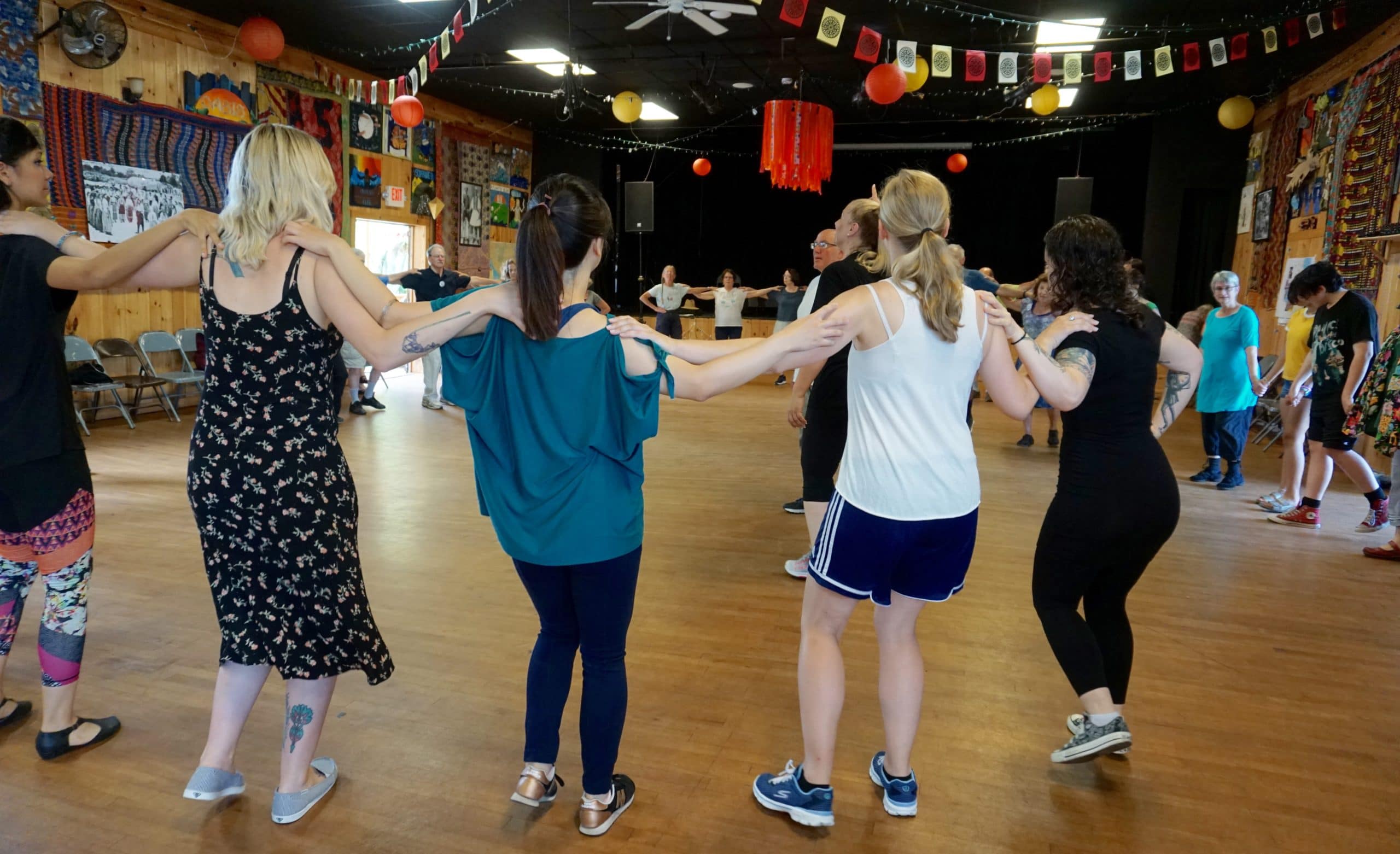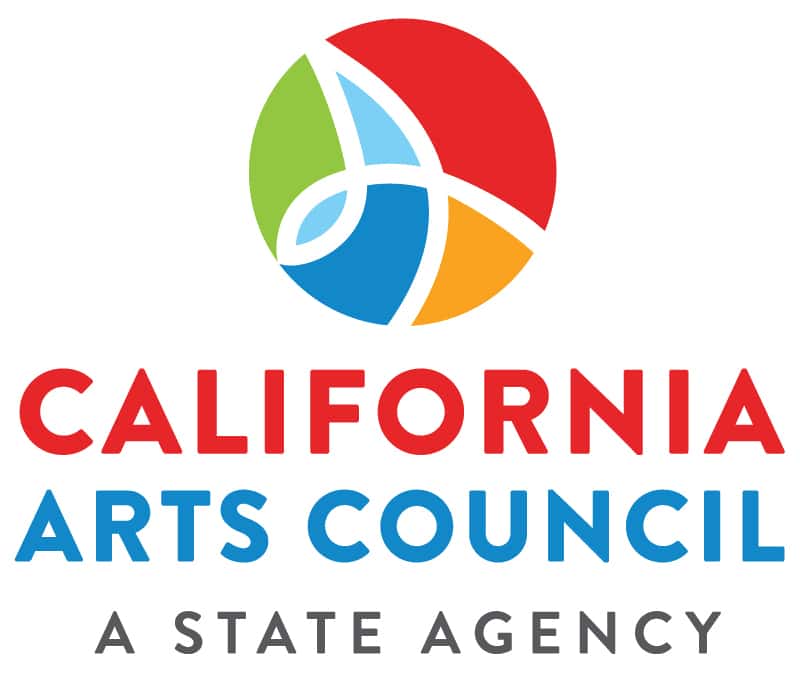The Organization
The organization is governed by an all volunteer board. It is run by two year-round part-time staff members, volunteer committee members and a host of full- and part-time paid and work-exchange workshop staff.
EEFC news, announcements and other information, like board meeting notes and reports, are posted in the EEFC Blog section of this website. Subscribing to our email Newsletter, joining the Discussion list, and following the EEFC on Facebook in addition to checking this website are good ways to stay informed.
Policies & Guidelines
Code of Ethics for EEFC Board Members
Goal
To establish a set of principles and practices of the Board of Directors (hereinafter “Board”) of the East European Folklife Center, Inc. (hereinafter “EEFC”) that will set parameters and provide guidance and direction for board conduct and decision-making.
Code
Members of the EEFC Board are committed to observing and promoting the highest standards of ethical conduct in the performance of their responsibilities on the EEFC Board. As such, Board members pledge to accept this code as a minimum guideline for ethical conduct and shall:
Accountability
- Faithfully abide by the EEFC’s Articles of Incorporation, by-laws and policies.
- Exercise reasonable care, good faith and due diligence in organizational affairs.
- Fully disclose, at the earliest opportunity, any and all information or facts which may result in a perceived or actual conflict of interest.
- Fully disclose, at the earliest opportunity, any and all information or facts that would have significance in board decision-making.
- Remain accountable for prudent fiscal management to EEFC community members, the EEFC Board, and the nonprofit sector, and, where applicable, to government and funding bodies.
Professional Excellence
- Maintain a professional level of courtesy, respect, and objectivity in all EEFC activities.
- Strive to uphold those practices and assist other members of the Board in upholding the highest standards of conduct.
Personal Gain
- Exercise the powers invested for the good of all EEFC community members rather than for his or her personal benefit.
Equal Opportunity
- Ensure the right of all EEFC community members to appropriate and effective services without discrimination on the basis of gender, sexual orientation, national origin, race, color, religion, age, political affiliation, or disability, in accordance with all applicable legal and regulatory requirements.
Confidential Information
- Respect the confidentiality of sensitive information known due to Board service.
Collaboration and Cooperation
- Respect the diversity of opinions as expressed or acted upon by the EEFC Board, committees and community, and formally register dissent as appropriate.
- Promote collaboration, cooperation, and partnership among EEFC Board members and members of the EEFC community.
Approved by the Board of Directors of the East European Folklife Center, Inc. May 2006
Program Committee Guidelines
for EEFC Workshop Teaching Staff and Class Selection
Organizational considerations
- Budget constraints – the Committee utilizes the EEFC staff budget for travel and honoraria as approved by the EEFC Board of Directors
- Fit with EEFC mission
- Space constraints – available class spaces per workshop/li>
- Overhead constraints – ease or difficulty of teaching staff interaction with the organization may be considered, for instance, new staff members generally require more attention and resources, therefore the organization may not be able to hire a large number of new staff in a given year; also, new staff may require a dedicated sponsor to facilitate travel and unusual negotiations (e.g. tours, visas, transatlantic travel)/li>
- Program Committee is not responsible to arrange visas or transatlantic travel/li>
Staff makeup
- Evaluations – staffing suggestions and staff reviews from camper evaluations are considered seriously
- Teaching ability and/or depth of knowledge/skill in a particular area
- Availability of staff (some staff may be difficult to get/afford, but would be a great asset)
- Continuity – staff members are frequently invited for a second year to provide some continuity for students and also allow new teachers to improve based on evaluations
- Variety of staff – staff may be varied over time to allow students to experience different teaching styles
- Diversity of staff – underrepresented groups are encouraged, e.g. male singing teachers, female instrumentalists
Themes or genre focuses
- Staff/genre support – expected staff contributions to evening party genres that might otherwise not be covered (e.g. responsibility for running a set, dance leaders, musical support)
- Periodically a camp will have a featured band or focus, then members of that band or focus would be priority to invite
Classes
- Evaluations – class and level suggestions from camper evaluations are carefully considered
- Traditional/village instruments (e.g. bitov and izvorno) are considered a priority to offer regularly as it is not easy to learn these elsewhere
- Traditional dance (as opposed to choreographed or composed) is considered a priority
- Modern instruments (e.g. accordion, clarinet, violin) are only offered in a Balkan style at the intermediate and advanced levels as basic skills on these instruments are widely taught elsewhere, and may not be offered every year
- Variety of levels
- Per class slot
- Over the years as it is generally not possible to offer all levels every year
Approved by the Board of Directors of the East European Folklife Center, Inc. October 2004
Policy on Harassment and Discrimination
Preamble
It is the mission of the East European Folklife Center (EEFC) to promote folk music and dance and to foster the understanding and respect of all peoples through shared experiences of Balkan cultures. The workshops and events sponsored by the EEFC are intended to be both educational and fun.
In the course of these events, it is natural that participants will form friendships and/or romantic relationships. However, in a community of different generations, cultures, and backgrounds what is acceptable behavior to one person may be unacceptable to another, and some behavior may be illegal. The EEFC is committed to maintaining an environment that is free from discrimination and harassment. Accordingly, it is and shall continue to be the policy of the EEFC that its event participants, employees, contract workers, teaching staff, staff musicians, volunteers, and visitors be free from all forms of harassment and intimidation.
Policy Against Harassment and Discrimination
The EEFC prohibits discriminatory practices and harassment on the basis of sex, gender, age, race, color, national origin, religion, disability, sexual orientation, or any factor protected by law, whether the harassment is caused by an event participant, employee, supervisor or manager, contract worker, volunteer, teacher, staff musician, or any other person. Harassment can include, but is not limited to, slurs, unwanted nicknames, threats, derogatory comments, and unwelcome jokes which would make a reasonable person experiencing such harassment uncomfortable in the event environment. Additionally, harassment includes verbal and physical conduct of a sexual nature when such conduct creates an uncomfortable, intimidating, hostile, or offensive environment. This may include, but is not limited to, inappropriate comments regarding an individual’s body, physical appearance, attire, or sexual orientation; and/or unwelcome flirting or propositions.
EEFC’s policy against harassment and discrimination is intended to protect all members of the community, including event participants, employees, contract workers, teaching staff, staff musicians, volunteers, and visitors.
Reporting Instances of Harassment
Any participant or employee who believes they are being harassed or discriminated against by another individual (whether or not that individual is a staff member of the EEFC) at an EEFC-sponsored event should immediately report such incidents to either (a) the Site Manager, (b) the EEFC General Manager, or (c) any member of the EEFC Board. Any participant or employee who seeks advice or information regarding whether to make a report of harassment or discrimination may consult with (a) the Site Manager, (b) the EEFC General Manager, or (c) any member of the EEFC Board. Such consultations shall be confidential and shall not constitute an official report of harassment or discrimination. Reports of harassment or discrimination in violation of this Policy should be brought forth as soon as possible after the alleged conduct occurs. Prompt reporting will enable the EEFC to investigate the facts, determine the issues, and provide an appropriate remedy or disciplinary action. For reports of sexual harassment which are not timely brought, the EEFC shall respond to such reports to the greatest extent possible.
How an Investigation Will Be Conducted
The EEFC will conduct a prompt and thorough investigation of the complaint or observation of harassment or discrimination and will take appropriate remedial action based on its investigation and findings. All reports of harassment or discrimination will be investigated by the EEFC, even if the individual making the report requests that no action be taken.
Since allegations of harassment or discrimination are serious matters for all concerned, cooperation will be expected of all concerned. Discretion will be utilized in the investigation and, when appropriate, in remedying improper conduct. Information will be kept as confidential as possible and will be released only on a “need to know” basis. The EEFC will follow its written procedures for responding to reports of harassment or discrimination, a copy of which will be provided to the complainant and to the accused party.
Allegations of Harassment or Discrimination Involving Minors
The EEFC is committed to the safety of all community members including children in attendance at EEFC-sponsored events. Any minor, or their parent or guardian, who believes that the minor is being harassed or discriminated against should immediately report such instances to (a) the Site Manager, (b) the EEFC General Manager, or (c) any member of the EEFC Board. In such cases, the minor’s parents or guardians will be promptly informed of the complaint, by and for all purposes of EEFC’s investigation will stand in the role of the minor and will be kept fully informed of the progress of the investigation and its resolution. If the complainant or their parent/guardian feels the incident meets criminal criteria, they will be encouraged to report it to the relevant authorities.
The EEFC’s Commitment to an Effective Harassment Policy
The EEFC will not tolerate retaliation against anyone who makes a good-faith complaint or who cooperates in a harassment investigation, nor will the EEFC tolerate false reports of violations of this policy. Violations of this policy, including but not limited to harassing or retaliatory conduct, failure or refusal to cooperate in a harassment investigation, false reports of harassment or discrimination, or other actions contrary to this policy, will result in disciplinary action. Such action may include discharge from a position or expulsion from an event. In accordance with the EEFC’s standing policy on disruptive behavior, the EEFC also maintains the right to refuse admittance to anyone who has exhibited such behavior at past EEFC events.
Revised June 2024



